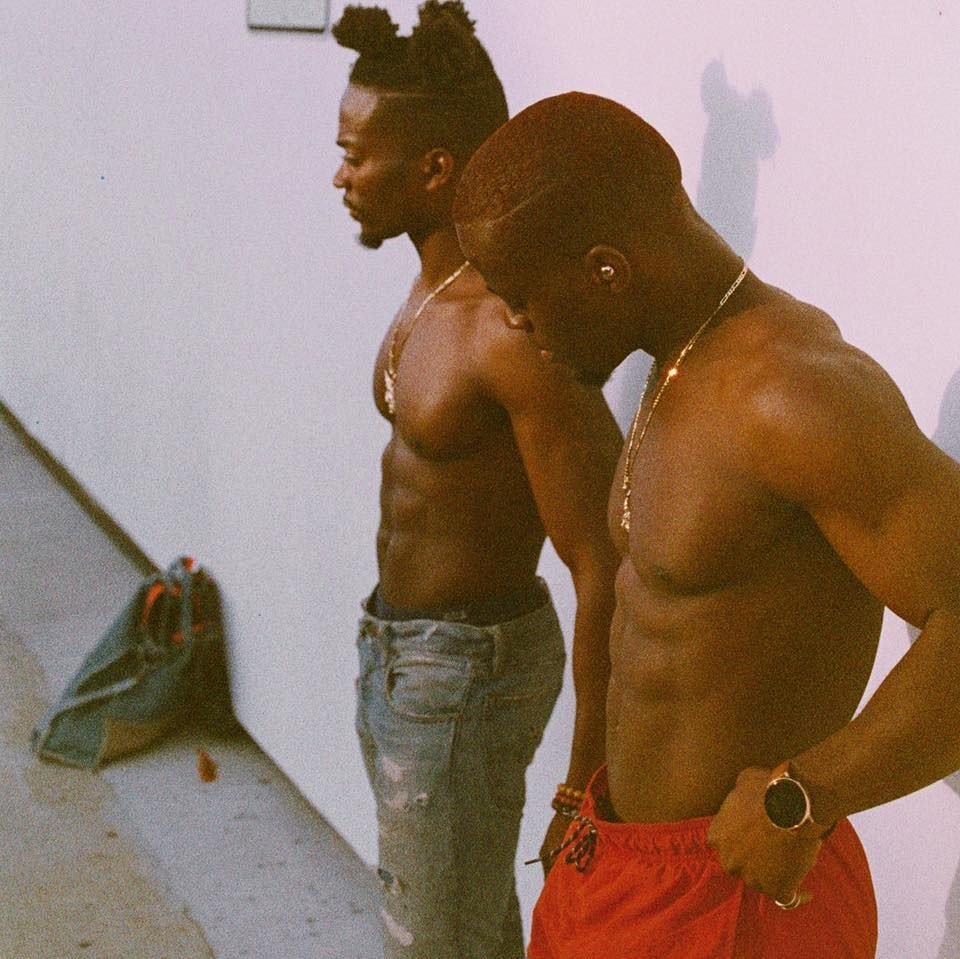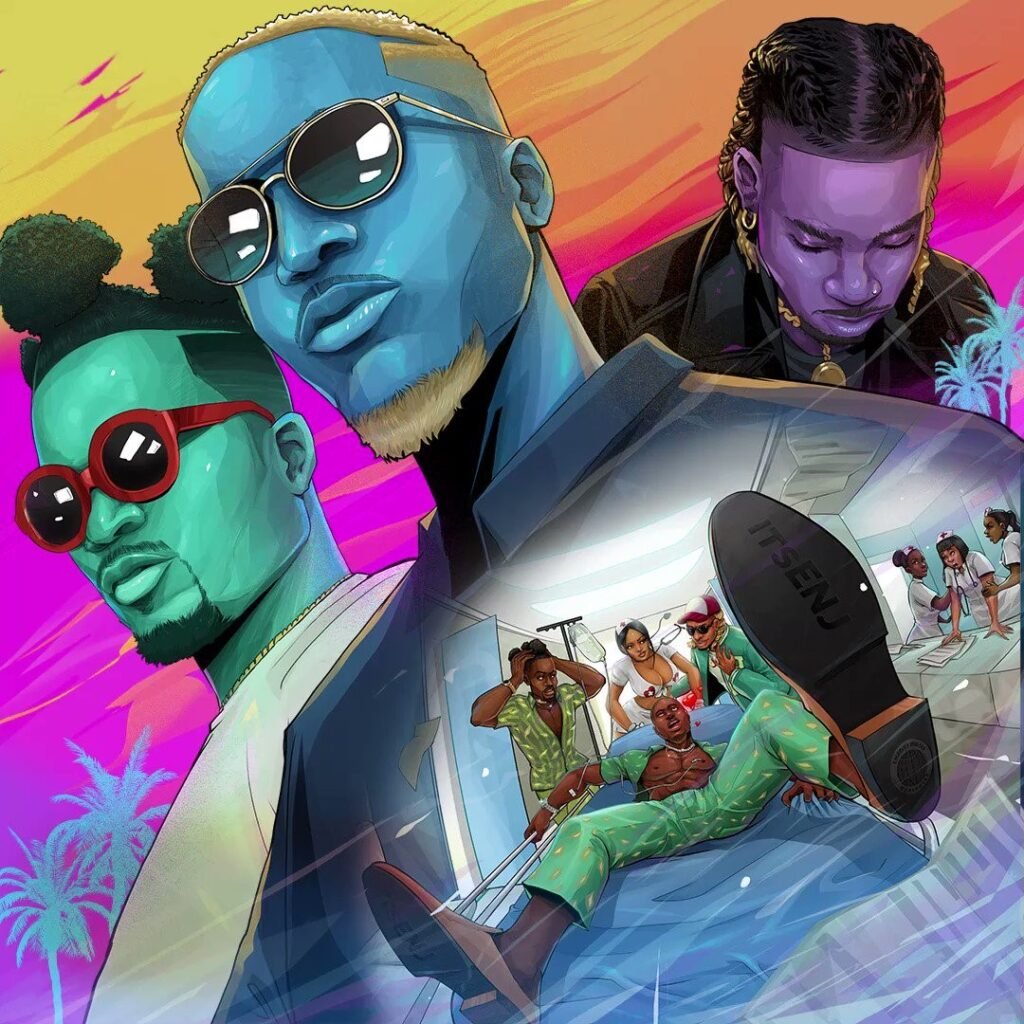The DAPPA DUO comprised of Chimdi and Otito, make up itsENJ. The two brothers, who were raised in Enugu and New York City, are Nigerian Americans who sing, write songs, and produce music. They became one of the most recognizable voices in the new global sounds of Afrofusion, AfroPop, and Alté emerging from the larger African diaspora thanks to their debut EP Born On The Moon.
Their independently produced debut song, PFI (Pray For It), features Africa’s most popular and streamed Boyfriend, CKay.
They both have a strong passion for music, Igbo culture, and community involvement. With their distinctive sense of style, distinctive sound textures, dedication to community empowerment, and inherent creative direction, itsENJ is quickly becoming known in the music scene. They were greatly influenced by Hip Hop and a melting pot of cultures while growing up in the Bronx, New York, including, to name a few, African, Caribbean, and Hispanic. The ability to connect with audiences from all walks of life is made possible by itsENJ’s distinctive background and openness to influences from around the world. Their combined talent creates an exhilarating sensation that cannot be duplicated.
The itsENJ sound and “enjoy life” mission embody “feel good energy,” which has won the admiration of peers and fans around the world. By launching ground-breaking initiatives, itsENJ is carving out a distinctive niche and carefully curating the DAPPA culture. A few months ago, itsENJ released the new song “Doctor,” and since then, it has gained a lot of attention from their fans and peers. It is an upbeat Afro-pop song with melodies that make you want to dance. Check out the song and the exclusive interview below:

1. Can you tell us a bit about where you come from and how it all got started?
ITSENJ: We were Born in Enugu, Nigeria, where we we were always around African sounds and drums. We were then introduced to FL Studio during our high school days in NYC and from then it stuck. There was nothing more fulfilling than music. It was then we realized that music is is going to be a life long endeavor for us.
2. Did you have any formal training or are you self-taught?
ITSENJ: We took some music lessons here and there but most of what we do was learned from just doing it every day.
3. Who were your first and strongest musical influences and why the name ‘ITSENJ’?
ITSENJ: Our first and strongest musical influences are 2Face, Bob Marley, Burna Boy, Flavour, Kanye West and Michael Jackson.
Our name itsENJ (its Enjoyment) is simply the reason why we make the kind of music we do, for enjoyment. It was formed by my self Chimdi and my brother Otito. We are also know as the DAPPA duo because we love to dress and believe that music and fashion go really well together. We want to make people dance, smile, love, feel, think…etc. The several layers and colors in our fashion represent the same layers and colors in our music.
4. What do you feel are the key elements in your music that should resonate with listeners, and how would you personally describe your sound?
ITSENJ: The key elements in our music are the feel good frequencies and vibrations from our tropical beats.
We are heavily influenced by African gospel as well because that’s all we listened to growing up. You can hear that in our Melodie’s and drum percussion.
Our music is a blend of AfroPop and Dancehall with a hint of R&B soul. It’s supposed to music make you feel like you’re high on a rocket ship on your way to a gorgeous island somewhere.

5. For most artists, originality is first preceded by a phase of learning and, often, emulating others. What was this like for you? How would you describe your own development as an artist and music maker, and the transition towards your own style, which is known as POP?
ITSENJ:
We listened to a lot of music and we used to DJ for a wide audience so they exposed us to so many genres. We also grew up in what is known as “uptown” Bronx NY which was heavily influenced by Caribbeans, Jamaicans to be specific. Our time and experience with these different cultures heavily influenced our style of music.
6. What’s your view on the role and function of music as political, cultural, spiritual, and/or social vehicles – and do you try and affront any of these themes in your work, or are you purely interested in music as an expression of technical artistry, personal narrative, and entertainment?
ITSENJ:
We don’t really like to talk too much about politics. But we do see what is going on around the world, we feel it and we strive to express those feelings as raw as possible through our music. Our music is for enjoyment so it’s mostly a mixture of our artistic expression, personal narrative and entertainment.
7. Do you feel that your music is giving you back just as much fulfillment as the amount of work you are putting into it or are you expecting something more, or different in the future?
ITSENJ:
Yes, from the creation alone we experience fulfillment from the ability to actualize an idea. This feeling coupled with the experience of others who hear our music is enough to bring joy and encouragement to any artist.
8. Could you describe your creative processes? How do usually start, and go about shaping ideas into a completed song? Do you usually start with a tune, a beat, or a narrative in your head? And do you collaborate with others in this process?
ITSENJ:
We usually start with a beat and then we create what we call a mumble track where we just hum a melody that we feel will go good with the song, after we listen to that melody then we find words that best fit the feel of the melody.
9. What has been the most difficult thing you’ve had to endure in your life or music career so far?
ITSENJ: Lots of no’s and very few Yeses. We are independent right now so, the excessive investment of time and resources into creating good music and getting it out so all our fans could enjoy.
10. On the contrary, what would you consider a successful, proud or significant point in your life or music career so far?
ITSENJ: There has been a couple but by far our successful release of our second biggest single “pray for it” feat Ckay was a major proud moment.
11. With social media having a heavy impact on our lives and the music business in general, how do you handle criticism, haters, and/or naysayers in general? Is it something you pay attention to, or simply ignore?
ITSENJ: If you don’t haters, you not popping. We don’t worry about them tho, we are focused on getting this good music out to the fans.
12. Creative work in a studio or home environment, or interaction with a live audience? Which of these two options excites you most, and why?
ITSENJ: Interaction with a good live crowd is most exciting because it brings the idea full circle. From the inception in our heads to the reactions and impact in real life. I truly seeing how the music we are making is positively impacting a crowd.
13. Do you think is it important for fans of your music to understand the real story and message driving each of your songs, or do you think everyone should be free to interpret your songs in their own personal way?
ITSENJ: We would like to leave it up to our fans to interpret our songs in there own personal way.
KEEP IN TOUCH:
FACEBOOK | INSTAGRAM | TWITTER | SPOTIFY | WEBSITE | YOUTUBE


